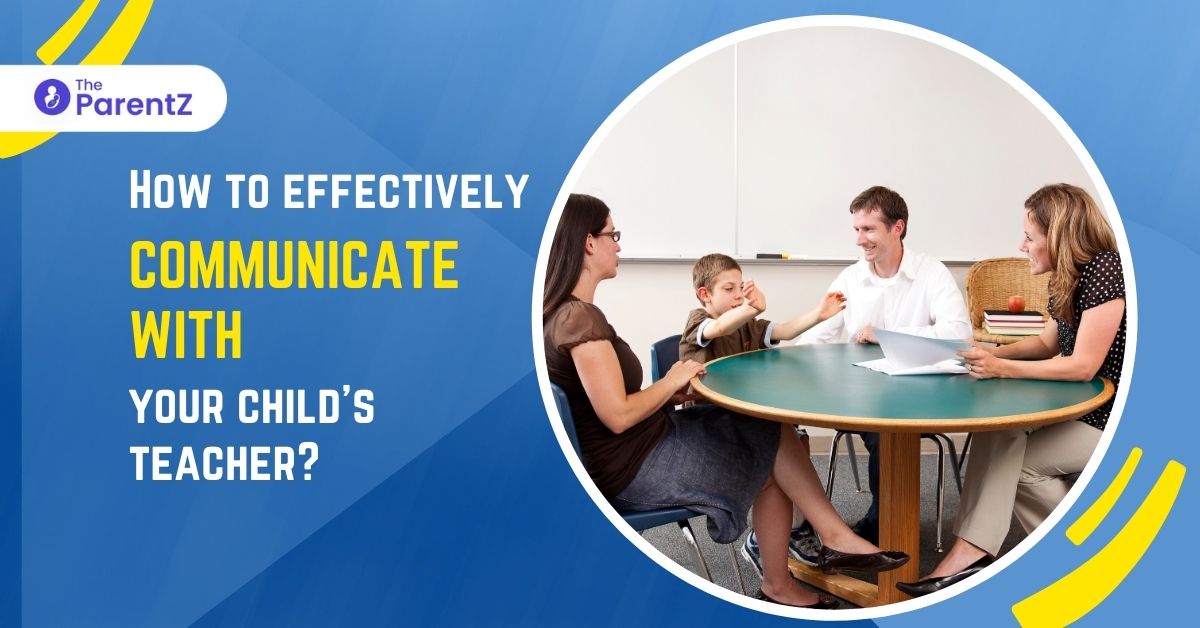Your child’s teacher is perhaps the only person who spends a lot of time with her every day except for you. It is important that you are in touch with her at all times. Positive involvement with the teacher can improve the child’s performance in both the academic and emotional sphere.
You are your child’s greatest teacher but the classroom is not your domain. The synergy between you and the teacher in school has to be in total sync. Communicate with your child’s teacher in an effective manner to ensure the best results for your child’s overall development.
The smart way to talk to teachers at the Parent Teacher meeting
Parent teacher meetings are a good way to communicate with your child’s teacher. It is a designated time when you can discuss every issue that you have regarding the child’s school life. It could encompass sports, academics and other extracurricular activities.
It is important that you make a note of all that you want to discuss with the teacher. It is respectful to utilize her time with you optimally. This is the window you get to understand what your child is like in school. It is imperative that you know not only about academic achievements and issues but also how your child relates socially with other classmates and teachers in authority. Perhaps the soundest parenting advice that can be given is that do not treat these meetings to know only the academic progress of your child, understand the interpersonal relationships your child has at school too.
Beyond PTM’s
The parent teacher meetings are good to communicate on a regular basis. But, there are many more things you can do to maintain an effective communication with your child’s teacher. Most modern schools have conferences, seminars and open house days where parents and teachers can interact.
- Volunteer at the school events to open new lines of communication. It is the best way to interact with all teachers in an informal setting. The two-way relationship is a good way to bond with teachers who are teaching your child presently, and the ones who will be in charge in subsequent years.
- Use the homework or school diary to drop notes to the teachers about your concerns.
- Emails are a good way to communicate. It is non-intrusive and the teacher becomes aware of the issue without having to give you an answer immediately.
- Always try and drop off and pickup young children. It is a great way of getting to greet the teacher every day. It is also a great way to create a bond with the teacher.
There are some cardinal rules that you must bear in mind when you communicate with your child’s teachers. It is not polite to be intrusive. Do respect the private space of the teacher. While it is a good idea to talk about the ways that you can help the child reinforce the same values both in school and at home, it is not a good thing to complain about your child’s behaviour in school. Allow the teacher some space to revert to you. Do not crowd the teacher at all. It can be as seen as hovering.
The communication should be an extension of a three way relationship between the teacher, student and the parent. The synergy is the best way to create good environment for the child to develop into a balanced individual.








Be the first one to comment on this story.